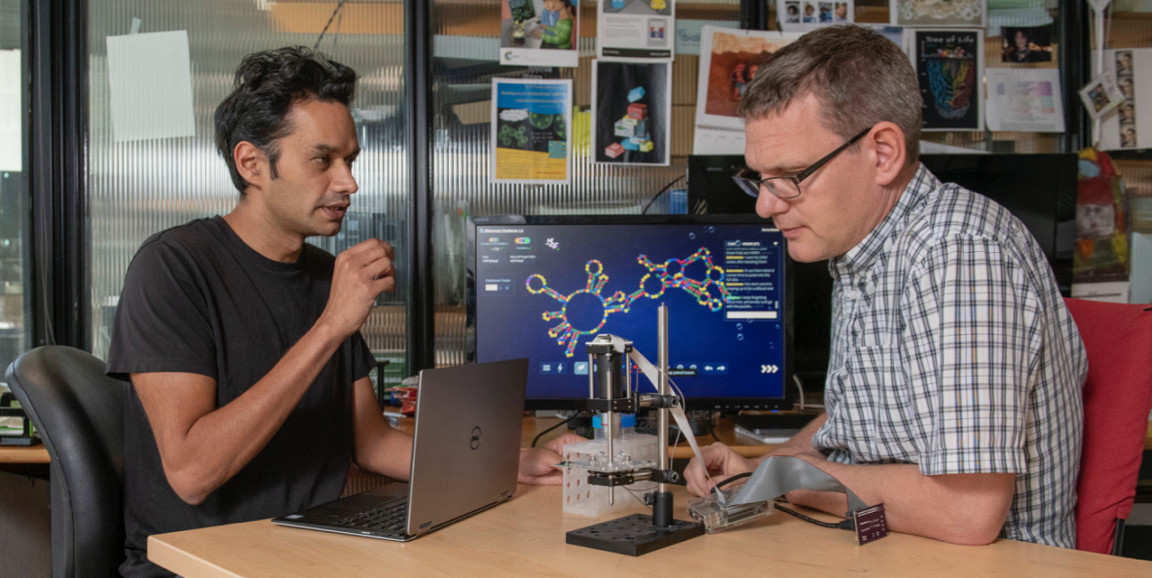Combine citizen science, crowdsourcing and video games and you get scientific discovery games -- games where players can contribute to science, regardless of their own expertise. This is the equation according to Rhiju Das, PhD, and Ingmar Riedel-Kruse, PhD, Stanford researchers and scientific discovery game developers who co-authored a review of this burgeoning field, which appears in Annual Review of Biomedical Data Science.
"There's this paradigm of scientific discovery games and it may sound silly or far-fetched, but in the last 10 years it's led to important scientific discoveries in several different disciplines," said Das, who is an associate professor of biochemistry. "We want more people to play the games, more people to create these games, and more people to realize that this is a legitimate mode of discovery."
Scientific discovery games harness the power of crowds and focus on tasks where humans still far exceed the abilities of computers -- such as pattern recognition, as I wrote in a Stanford news release. One example is Das's Eterna, an online puzzle game where players design molecules for RNA-based medicines. With over 200,000 players, Das has used results from the game to both further his lab's research and reward players in the game. Most recently, players have begun writing manuscripts for peer-reviewed journals, even though they aren't experts in the field.
Riedel-Kruse, who is an adjunct professor of bioengineering, works on educational biotic games, where players can interact with living organisms in game-like settings. In one such game, players rack up points by guiding light-seeking microbes, called Euglena, through goal posts on a virtual soccer field.
Scientific discovery games even made their way into the world of massive multi-player online games when Emma Lundberg, PhD, a visiting associate professor of genetics at Stanford, developed a mini-game for the computer game EVE Online. Players of Lundberg's mini-game contributed to better understanding of proteins' locations in cells.
Das and Riedel-Kruse envision a future for scientific discovery games that brings players and experimental laboratory science closer together with real-time results and large-scale, remote access to more advanced equipment. They look forward to seeing how academic study of scientific discovery games develops -- such as research about the ethics of these games and their effects games on players and people who may benefit from the scientific results.
As access to these games and the tools required to make them becomes easier, the researchers hope new ideas will take scientific discovery games in new directions.
"There are games where you get together in teams and you explore worlds and carry out battles and there are real-time strategy games, like StarCraft," Das said. "There are entire genres that haven't yet been tapped into for science discovery games."
Photo by L.A. Cicero




